Minna Tarkka Lectures 2025
Collective Imagination in the Era of Optimisation
December 1–4, 2025
At Kiasma Theatre and Aalto University
Speakers:
Artist, researcher, curator, and organiser Ruth Catlow
Artist collective eeefff
Artist and game designer Harold Hejazi
Respondents:
Artist-organiser Andrew Gryf Paterson
PhD Marleena Huuhka
Artist, educator, and co-founder of Station of Commons Grégoire Rousseau
Food pairings for the lectures by artists:
Alejandra Alarcón
Koira1 and Emma Vilppula
Caroline Suinner
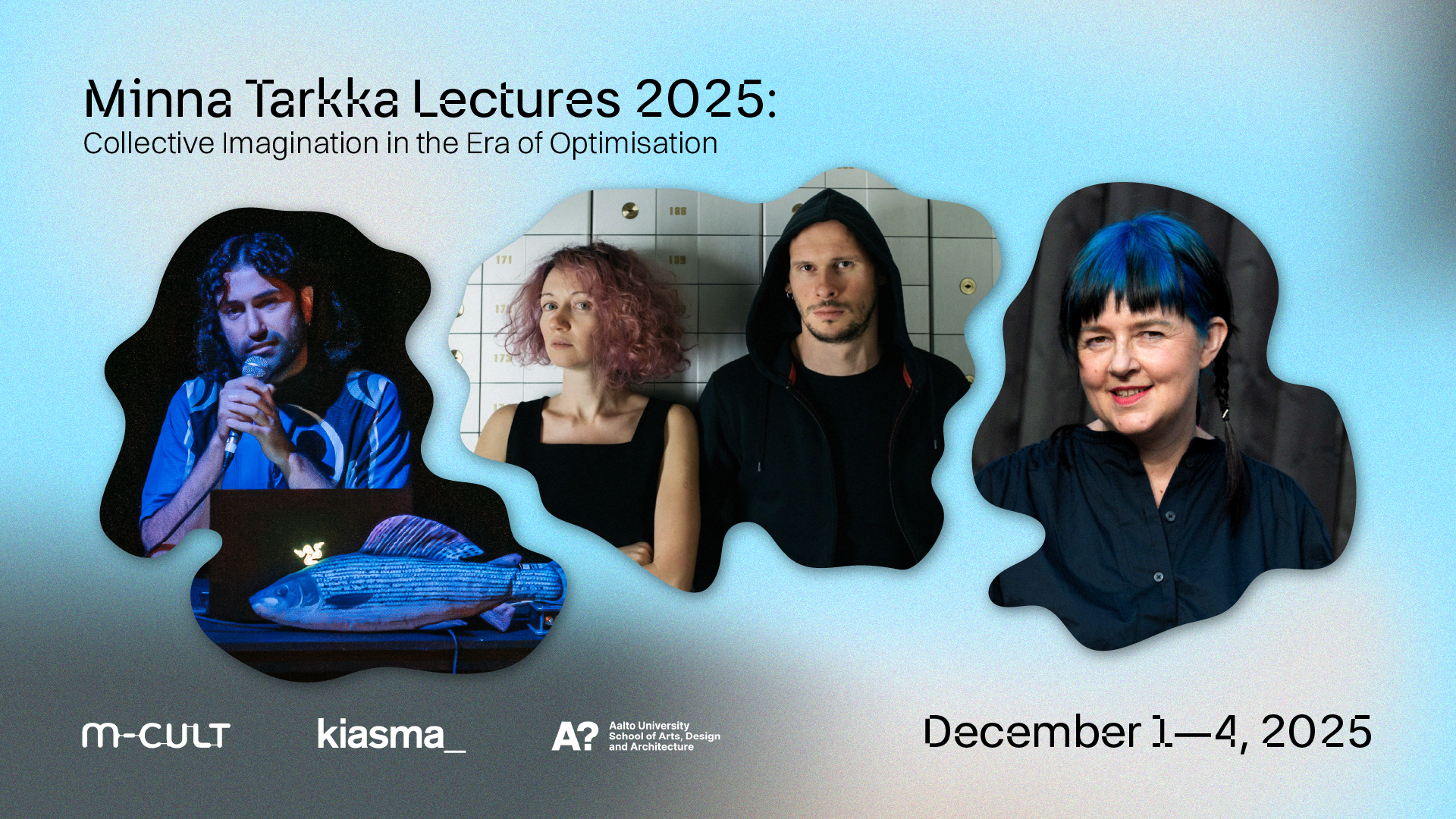
M-Cult presents the second edition of the Minna Tarkka Lectures, an annual get-together dedicated to discussing and debating the potential of art, media, and technology in reshaping current and future democratic societies.
Inspired by the legacy of media art pioneer and M-Cult’s founder Minna Tarkka (1960–2023), this series continues her commitment to critical experimentation and socially engaged practices rooted in a deep commitment to hospitality and the intersections of political and technological development.
Responding to pressures in contemporary social and cultural environments impacted by digital, networked, and so-called intelligent technologies, this year’s edition asks: What forms of togetherness and resistance surface through media within the context of artistic practices today? How can artists, communities, and technologies rewire shared futures when the dominant narratives emphasise acceleration and optimisation?
To explore these questions, M-Cult has invited three contemporary voices whose artistic and theoretical practices challenge technological power while cultivating emerging forms of collectivity: Ruth Catlow, artists collective eeefff, and Harold Hejazi. Their workshops and public lectures will open spaces for shared reflection and imagination. Lectures are responded to by Andrew Gryf Paterson, Marleena Huuhka, and Grégoire Rousseau, and accompanied by edible artworks by Alejandra Alarcón, Koira1 and Emma Vilppula, and Caroline Suinner.
Through this programme, Minna Tarkka Lectures 2025 expands into a discussion of possibilities and calls for collective resistance, togetherness, connection, and solidarity in an era of screens, algorithms, fractured publics, and accelerationist capital. The programme ranges from community organisation and technologies to participatory and performative practices, as well as gaming and collective learning.
In Spring 2025, M-Cult organised the Open Advisory Session of Minna Tarkka Lectures, which served as a catalyst for understanding potential futures within the M-Cult community while planning future approaches for lecture events and programming.

Public Lectures
December 2, 2025, 14:00 – 19:30
Museum of Contemporary Art Kiasma, Kiasma Theatre, Mannerheiminaukio 2, 00100 Helsinki.
Also streamed on M-Cult’s YouTube channel
Ruth Catlow: Life and death in the World Wild Web
In the mid-1990s, artists, technologists, and activists united in the early web’s spirit of openness to build global infrastructures for creative and political collaboration. But accelerationist capital reshaped those dreams – eroding ecologies, commons, and digital freedoms. Today, as species and cultures face extinction, new generations are inventing adventurous practices of multispecies connection and solidarity.
Harold Hejazi: Reprogramming Public Spaces
In an era defined by screens, algorithms, and fractured publics, we are being pulled further apart, polarised, and left socially isolated. This lecture asks how we can return to the space between people.
Through examples of games in museums, theatres, and public spaces, it considers whether participation and conversation can stitch fragmented publics back together.
Join to explore how collaborative play can transform cultural spaces into civic arenas that serve as rehearsal grounds for collective resistance and togetherness.
eeefff: Scenes of Algosomatics, Educational Fiction, Partisan Technologies
eeefff is an artistic collaboration/made-up institution working across poetic computations and “infrastructures of imagination.” This lecture draws from their ongoing initiative School of Algorithmic Solidarity and focuses on techno-politic-poetic imaginations and the scenes of their unfolding. A key concept is Algosomatics, the somatic and bodily dimension of life supported and exploited by computation. The lecture examines how algorithmically aided environments modulate bodies, and how “motor inventiveness” (the history of developing and improving motors) can repurpose these effects into forms of imagination.
Togetherness
In M-Cult’s past and present, preparing and sharing food has been a vital medium for building communities and forming infrastructures for conversation around shared tables. Continuing this celebration of relational practices, Minna Tarkka Lectures 2025 pairs each lecture with edible artworks by artists Alejandra Alarcón, Koira1 and Emma Vilppula and Caroline Suinner.
Accessibility info Kiasma
Kiasma is fully accessible:
A wall switch opens the front door.
All floors are reachable by lift.
The upper landing in Kiasma Theatre is fully accessible.
If you need a wheelchair space, please contact Kiasma’s info beforehand.
Accessible restrooms are located on the first and fifth floors. They are designed to accommodate children as well.
More information: https://kiasma.fi/en/visitor-information/
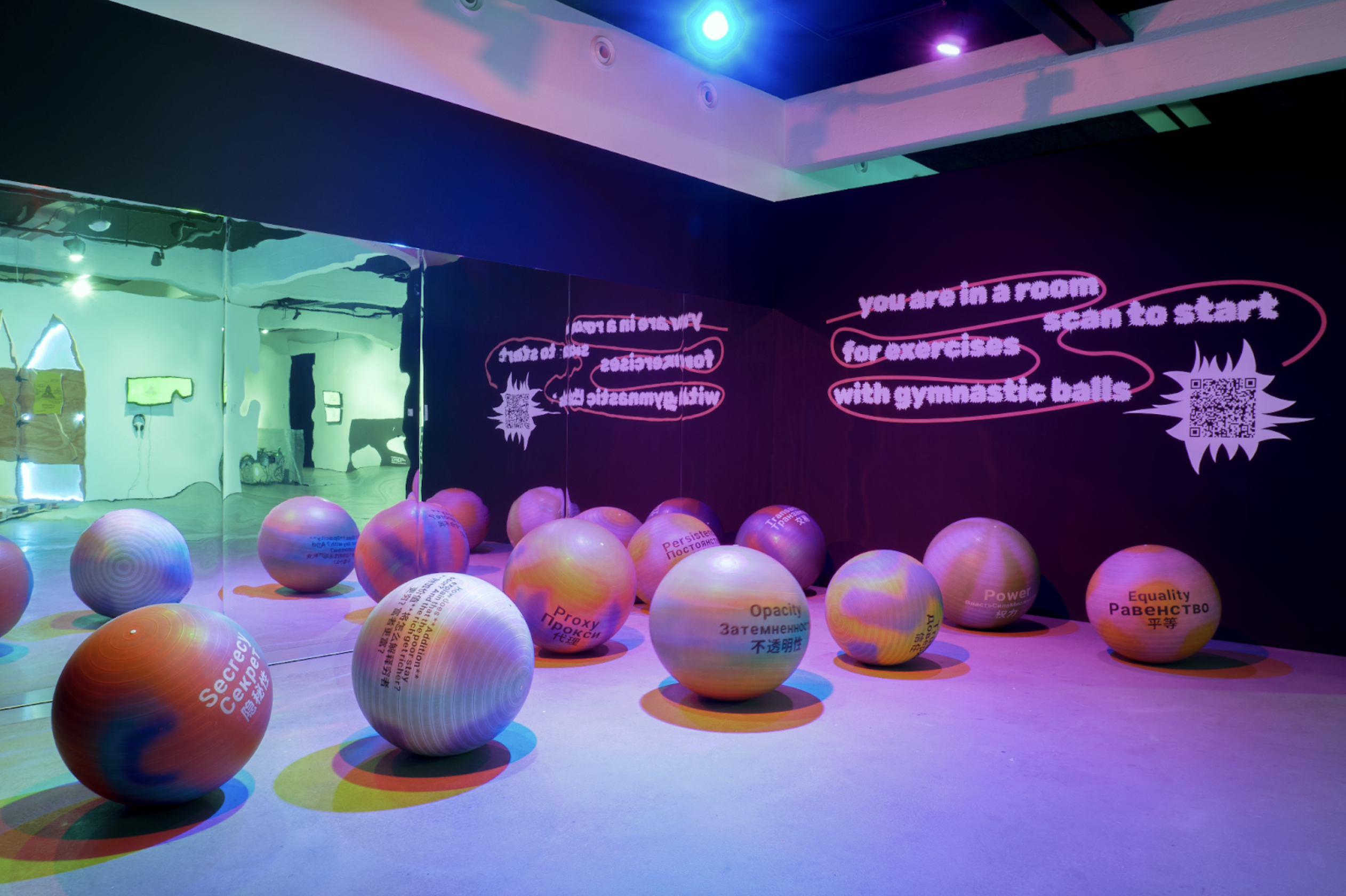
Workshops
December 1, and 3–4, 2025
Aalto University Marsio Building, Experimental Studio 1 (Room 3430), Otakaari 2 Espoo.
Registration for all workshops closes on 23 November 2025. Registration links below.
December 1
eeefff: Algosomatic Session
The session focuses on communicating privatised expert engineering knowledge through collective experiments and shared bodily knowledge. The artist collective eeefff proposes reenacting the inner workings of algorithms, embodying the formal choreography and rhythms of data flows, and performing visible and non-visible conflict positions within computational systems.
The session’s script is built around everyday machinic operations, actions, and tasks performed thousands of times per day. Riding a taxi. Looking for a partner. Taking measures against scooter “frauds” or those who do not pay for their ride. Moderating and labelling data. Punishing those who are too late at the delivery spot. Routines for calculating paths and surge prices for the fulfilment of desires and logistical needs. Mapping territories. Participants will explore these algorithmically mediated landscapes. The starting point will be specific codes and material artefacts. The workshop group will look closely into distant temporalities, work regimes, slip errors, leisure and punishment and the hardcoded computations supporting them.
December 3
Ruth Catlow: Finding Our Role in the World Wild Web – Solidarity Practices in Our More-than-Human Society
Part 1: Ruth introduces and guides an Interspecies Meditation – a playful kinship ritual for experiencing the more than human. Through guided imagination, deep listening, and reflection, participants explore new connections with other species. Evolving from The Treaty of Finsbury Park 2025, this collective journey invites reflection, creativity, and renewed commitment to life beyond the human.
Part 2: Participants share memories and encounters with plants, animals, landscapes, and weather, exploring what these experiences have meant to us. Next, we discuss what it would mean to build cultural infrastructure for ALL life forms and how participatory and digital art can foster curiosity, care, and interspecies connection. Lastly, we discuss opportunities for collaboration and imagine future adventures together in the World Wild Web.
December 4
Harold Hejazi: Reprogramming Public Spaces through Multiplayer Gameplay
Welcome to a reprogrammed classroom – part workshop and part playable exhibition. Participants are invited into the artistic practice of Harold Hejazi, where games and performance meet as tools for participation and belonging. Together we will explore the wide world of multiplayer party and conversation games. Do they enhance social connection and community? Could they serve as performance or art? Through a curated series of short playtests, discussion, and reflection, we will investigate what happens between people during play. From digital titles like Jackbox Party and What The Dub?! to analog games like Wavelength and The Mind, participants will experiment and ask how multiplayer games might reprogram public space.
No gaming experience required. Bring a mobile device or laptop, and any favourite multiplayer games you wish to share.
Accessibility info Aalto, Marsio-building
Marsio Building, 3rd floor (approximately 150 m from Aalto University metro station).
Accessible parking available ~20 m from the main entrance (Otakaari 1).
The space is wheelchair accessible and equipped with an elevator.
An accessible toilet is located on the same floor as the workshop venue.
The studio requires Aalto University keycard access. Visitors may request assistance from personnel at the Marsio Building front desk.
More information: https://www.aalto.fi/fi/toimipisteet/marsio
About the Participants
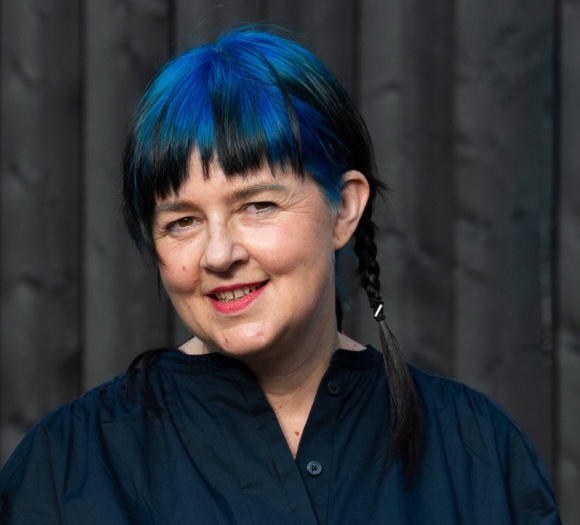
Ruth Catlow is a UK-based artist, researcher, curator, and organiser. She is the co-founder and director of Furtherfield, an organisation for art, technology, and eco-social change. Founded in London with Marc Garrett in 1996, Furtherfield believes a global focus on the financial values of art and technology has led to deep social, economic, and environmental inequalities. They envision a world where diverse communities act creatively to imagine and build more democratic, equitable alternatives together. Ruth specialises in playful co-creation and critical group-driven discovery that embraces more-than-human interests for fairer and more connected cultural ecologies and economies.
https://ruthcatlow.net/
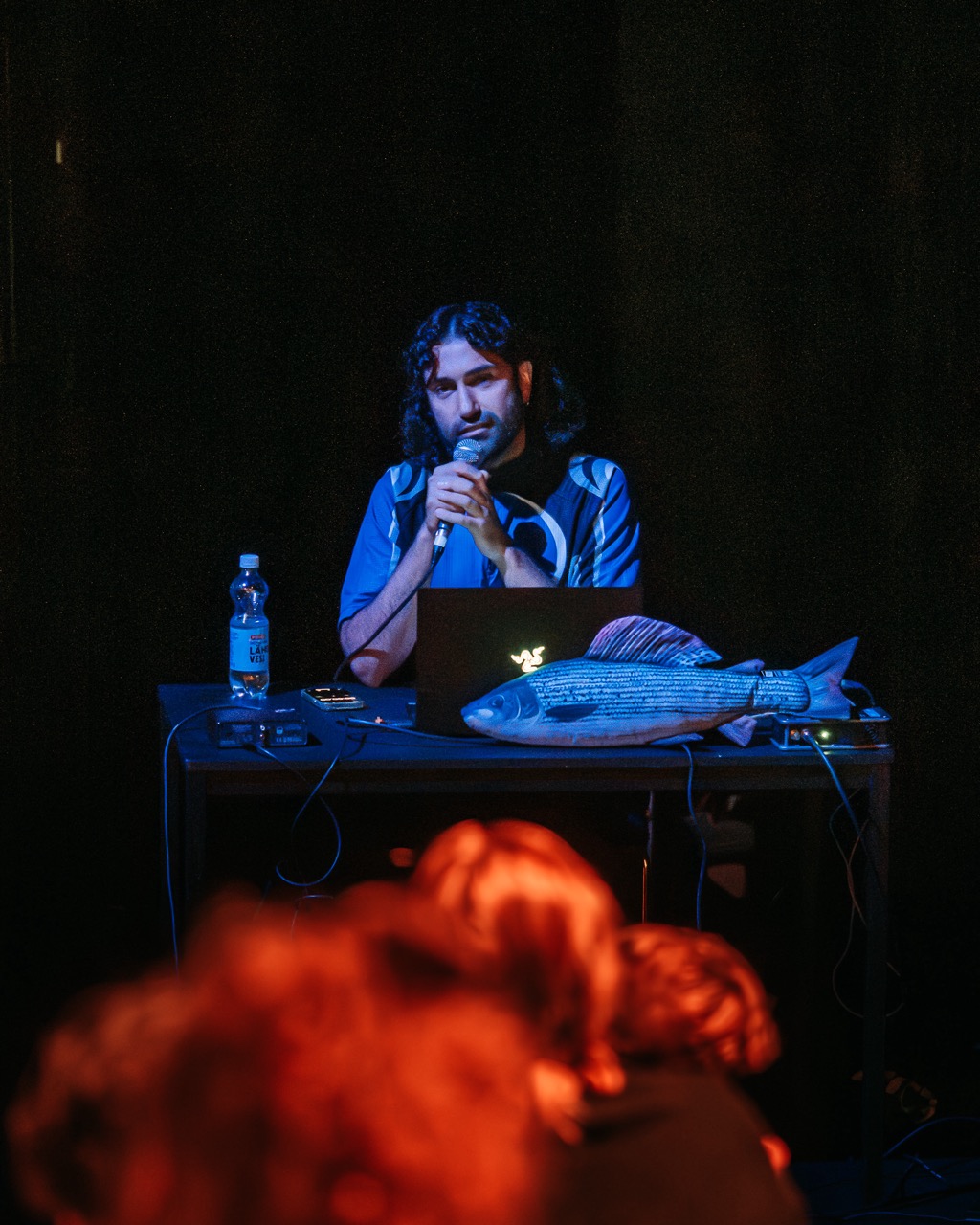
Harold Hejazi is a Canadian artist and game designer based in Helsinki. With a background in art education, theatre, and game development, he explores new forms of public involvement in the arts. Blending live performance, interactive storytelling, and game mechanics, Harold creates playful participatory experiences that challenge institutional and social norms. Using museums, public spaces, and digital environments as theatrical stages, he engages audiences in dynamic, improvisational encounters.
His current performance practice uses video games to address themes of race and marginalisation and to reflect on our evolving relationship with non-human worlds. Whether designing projects for a museum or theatre, Harold is always interested in how games may enhance how we learn, connect, and tell stories.
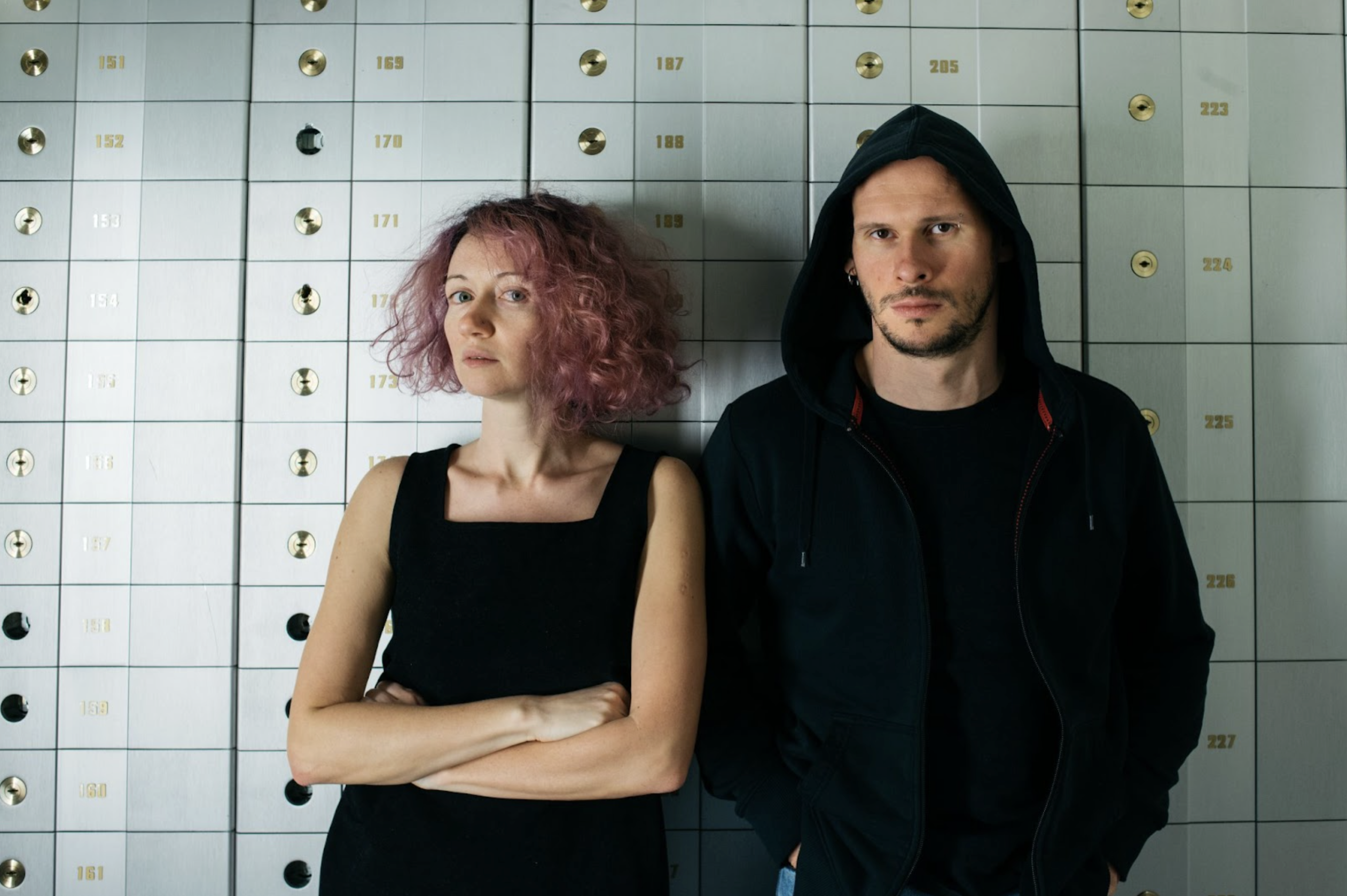
eeefff (Minsk/Berlin) is artistic collaboration/made-up institution/cybernetic political brigade/poetic computations/hacking unit/queer time. Active since 2013, the group works with emotions and affects shaped by technologies and creates software-based projects, publications, networks, and platforms that critically explore digital labour, value extraction, and community formation. Their methods include: public actions, online interventions, performative seminars, software and hardware hacking, framing environments, and choreographing social situations. They organise the School of Algorithmic solidarity (2022–ongoing) and have co-created projects such as Work Hard! Play Hard!, Decentric Circles Assembly (2024) and Forest Assembly of Educational Fictions (2025).
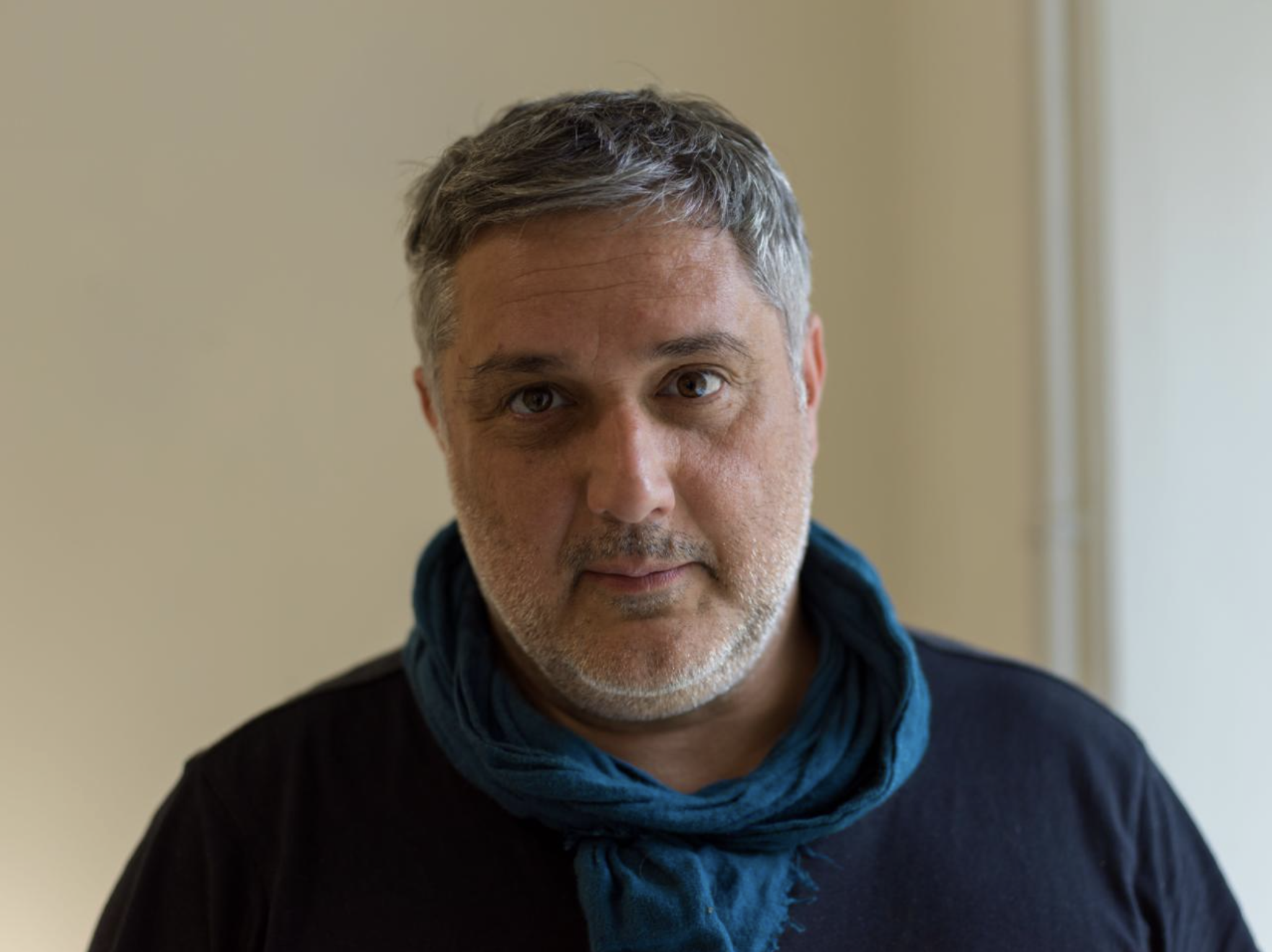
Andrew Gryf Paterson is an artist-organiser, cultural producer, educator, curator and independent researcher; specialised in exploring connections between art, digital culture, science, cultural activism related to the commons, DIY/Do-It-With-Others, ecological and sustainability movements, along with cultural heritage and collaborative networks. Originally from Scotland, Paterson has an international practice of over 20 years, based in the Baltic Sea Region, most often in Helsinki, Finland. Paterson’s participatory work spans media, network, and environmental arts and activism, often through workshops, performative events, and storytelling.
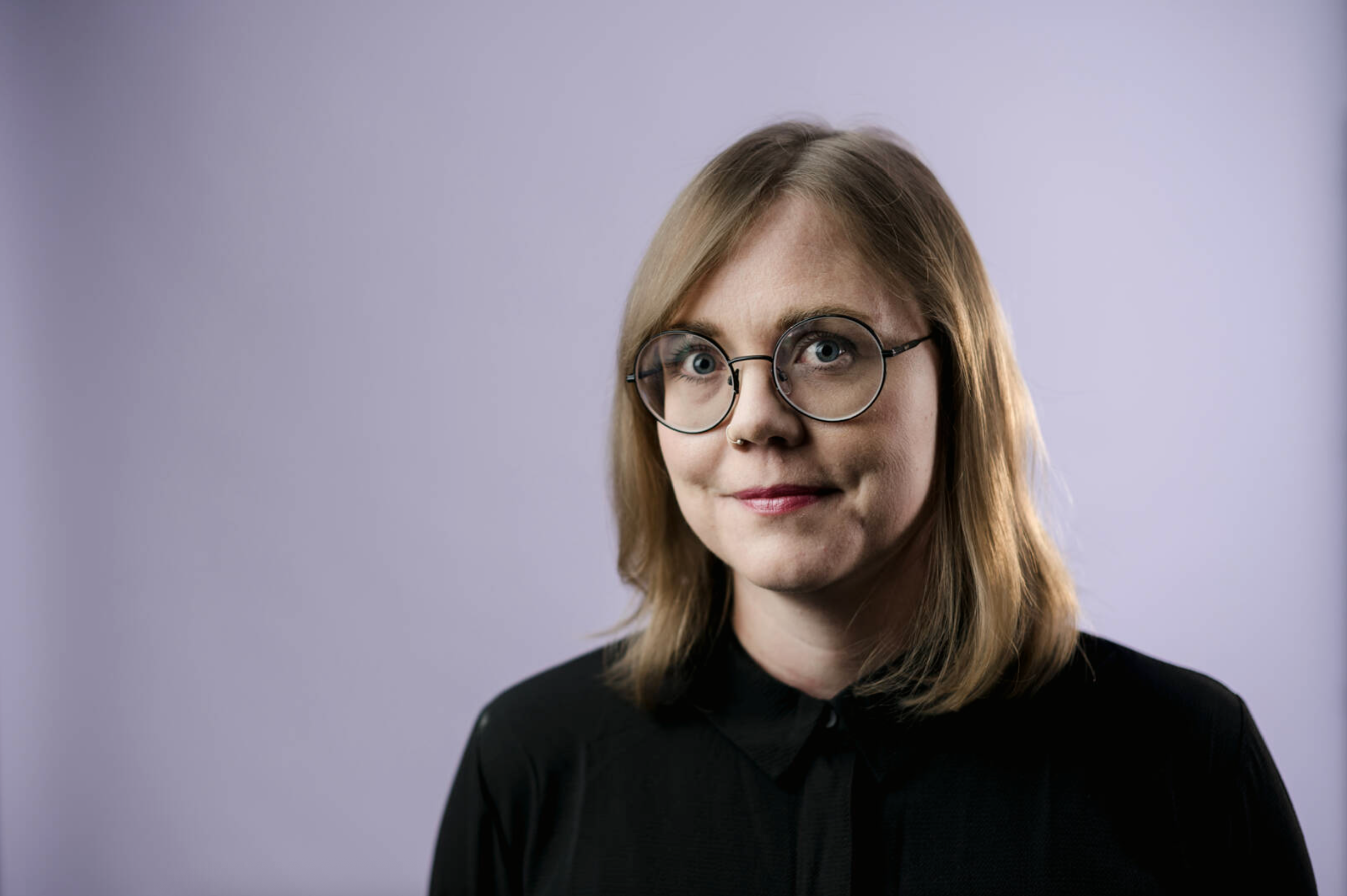
Marleena Huuhka (PhD) is a postdoctoral researcher at Tampere University. Her doctoral research examined video games as sites of performative resistance and explored practices of counterplay. She is currently working on a project on social media performances in war and conflict zones. Her research interests lie at the intersections between virtual, physical, and performative spaces.
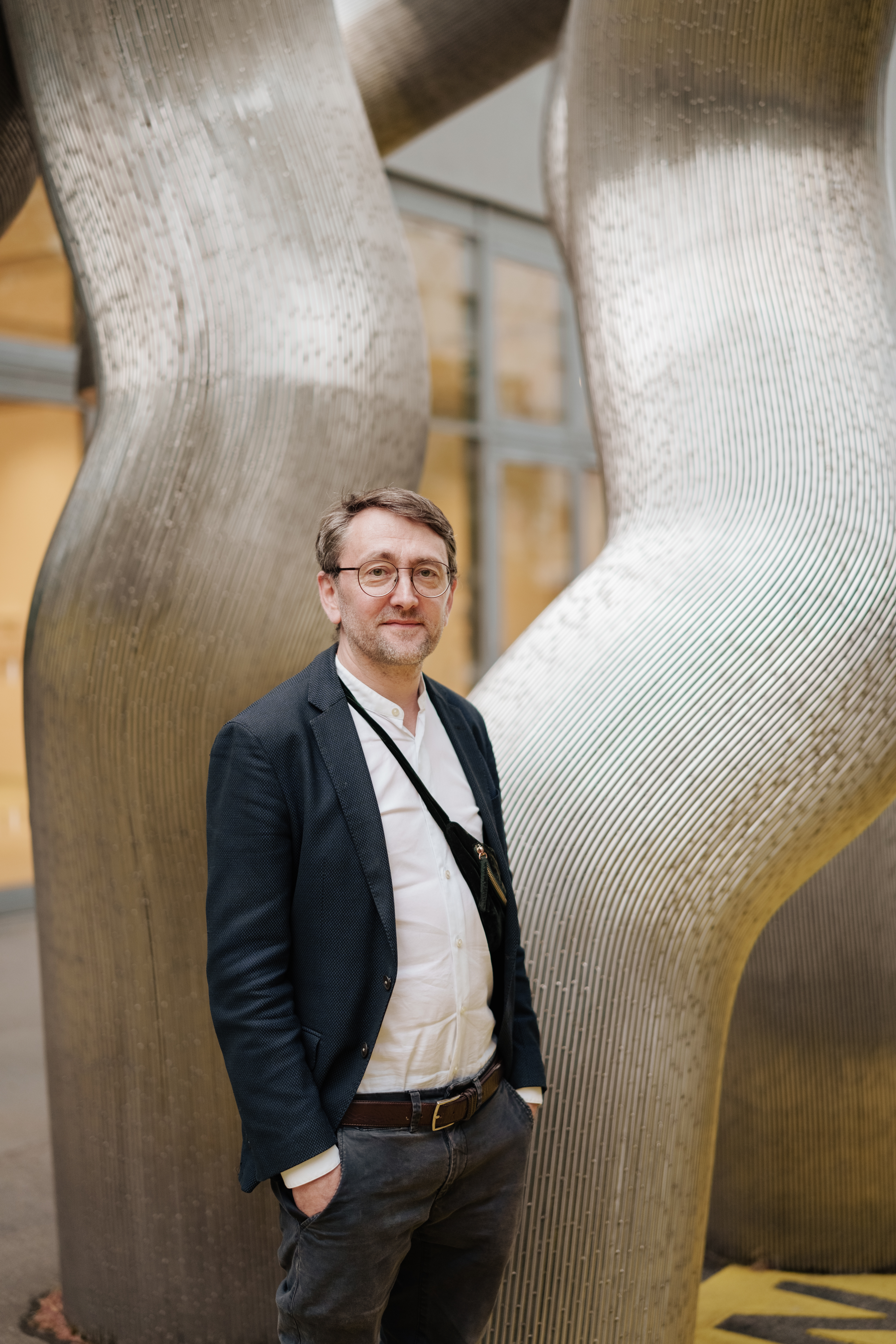
Grégoire Rousseau is an artist and educator based in Helsinki. He holds a degree in electrical engineering and a Master of Fine Arts and is currently a doctoral candidate at Aalto University. His research explores digital commoning practices with a focus on radio. In 2020, he co-founded Station of Commons and initiated lumbung radio for documenta fifteen.
Station of Commons participated in radio curatorial work for Manifesta13, documenta fifteen, Miss Read 2023/24/25, the African Art Book Fair at the Dakar biennial OFF 2024, and Maison Européenne de la Photographie Paris 2025. In 2024, he co-edited and contributed to the publications “Waves: Radio as Collective Imagination” published by Missread Berlin and “Radio as Radical Education” published by Station of Commons in collaboration with HfBK Hamburg Art University.
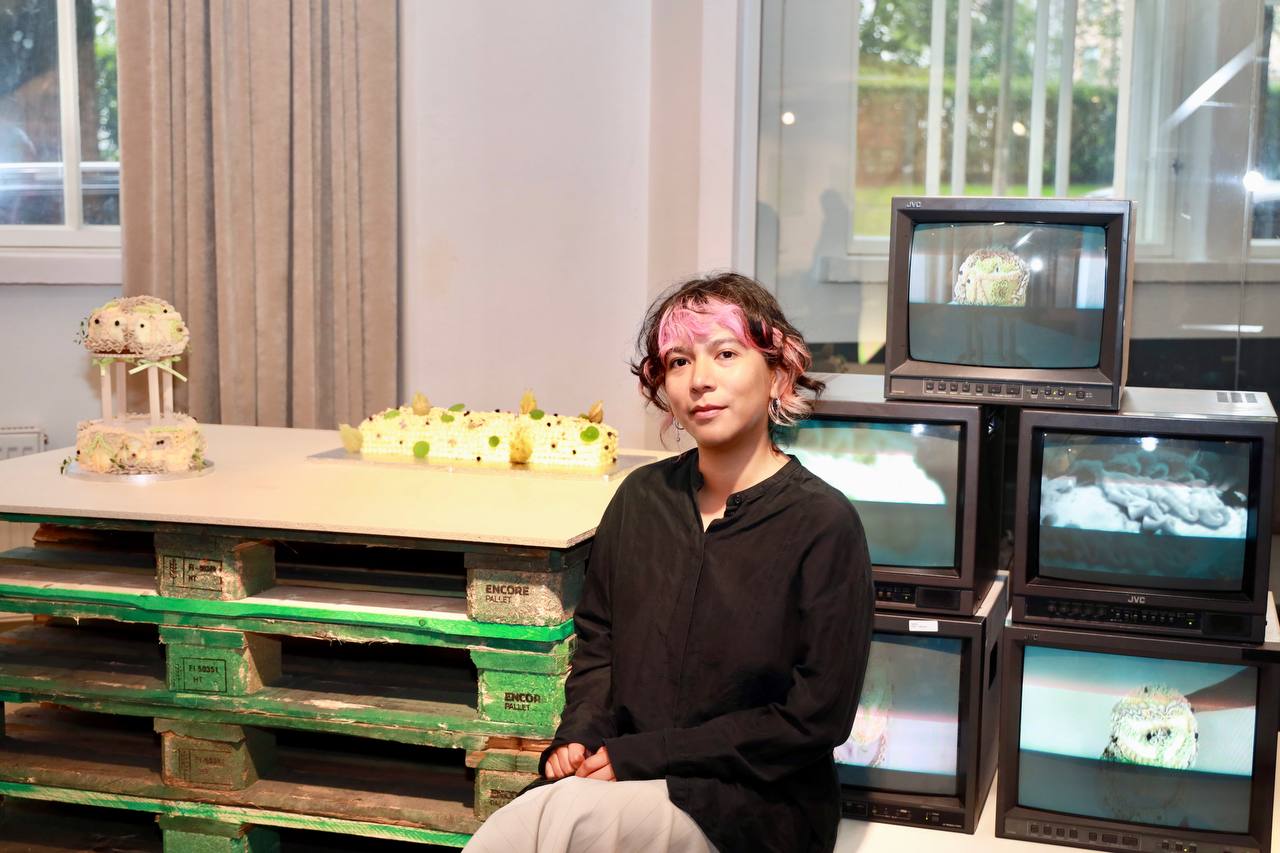
Alejandra Alarcón is an interdisciplinary artist working at the intersection of food, ecology, and art. Grounded in a decolonial and ecofeminist approach to knowledge production, her interest in (food) sustainability – the seasonality of things, nonhuman collaborations – is deeply tied to embodied practices such as walking, foraging, cooking, and digesting. Alarcón uses cake as a medium to create Edible Landscapes, ephemeral sculptures layered with flavor and meaning. Rooted in a location and its context, these often take the form of sweet treats meant to be shared and devoured communally. Her work is not only sensorially engaging – inviting audiences to touch, smell, taste, and contemplate – but theoretically strong, addressing complex political topics in accessible ways.
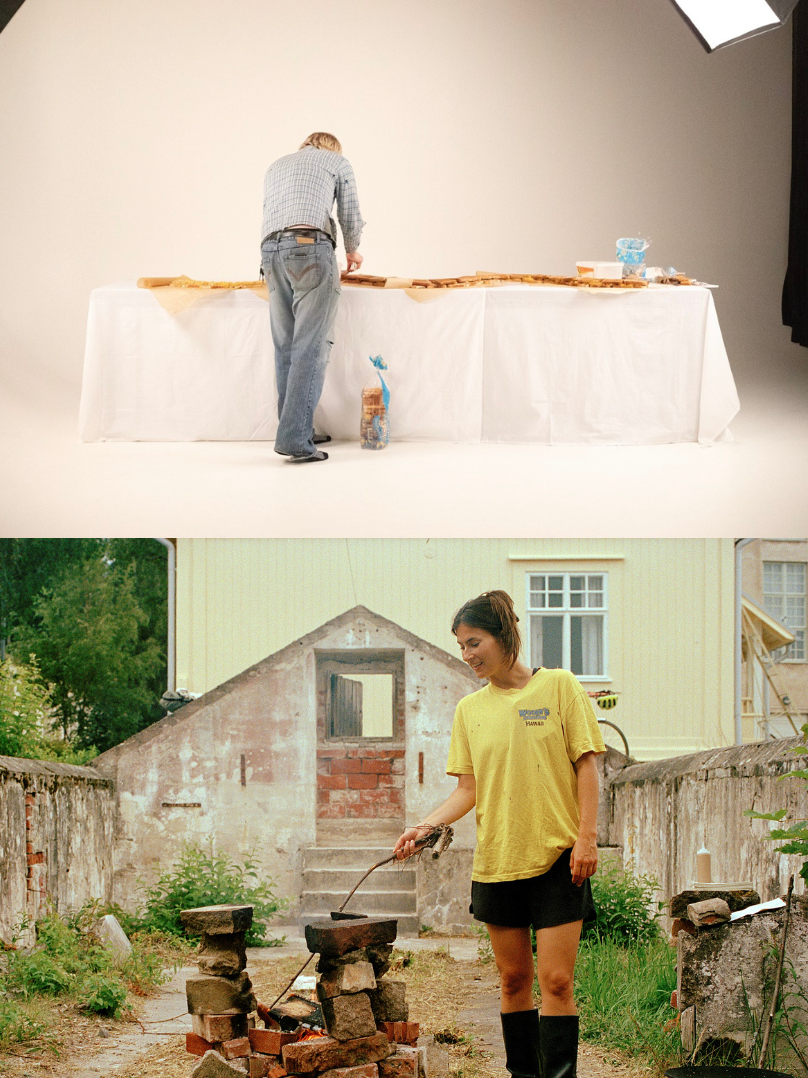
Koira1
Joona Sorsa's project Koira1 combines food and art. His works often represent a commentary on or alternative to current food culture practices. Sometimes they are based on a larger theme, such as social norms related to food service, and sometimes on a smaller one, such as a modern cooking dish, style trend, or microtrend. Koira1's work has been exhibited at venues such as the Pitted Dates art space in Helsinki, the B-galleria in Turku, and the K17 art and ecology experimental space in Sipoo.
Emma Vilppula
Emma Vilppula is a sculptor based in Helsinki. Vilppula works with a wide range of materials, creating spaces for experiencing art. She makes objects that open up a path to surprising experiences. Vilppula's work is a mix of fun and excitement. Often, you can go inside his works or interact with them.
For a few years, Vilppula & Sorsa have been collaborating together, creating performances, installations and events.
Caroline Suinner
Caroline Suinner is a multimedia artist, curator and creative interested in topics regarding representation, equal opportunities and radical joy of marginalised people.
About the Minna Tarkka Lectures Series
Minna Tarkka Lectures are developed as an experimental public forum and learning initiative that amplifies critical activities in the arts and media, facilitating debates on the artistic, social, and technological currents of our time. Each year, the programme builds dialogue that underscores the roles of art and media as active contributors to civil society amid the severe challenges faced by democratic life today.
Minna Tarkka Lectures 2025 edition is produced by Media Culture and Art Agency M-Cult, in collaboration with the Museum of Contemporary Art Kiasma and Aalto Media Lab, and kindly supported by Jenny and Antti Wihuri Foundation.
All events are free and conducted in English.
Programme Schedule
MON, December 1
10:00 – 12:00 & 13:00 – 16:00
WORKSHOP – Aalto University, Marsio-building
eeefff: Algosomatic Session
TUE, December 2
14:00 – 19:30
LECTURES – Museum of Contemporary Art Kiasma, Kiasma Theatre
Ruth Catlow: Life and Death in the World Wild Web
Harold Hejazi: Reprogramming Public Spaces
eeefff: Scenes of Algosomatics, Educational Fiction, Partisan Technologies
Lectures are paired with respondents Andrew Gryf Paterson, Marleena Huuhka, and Grégoire Rousseau, and edible artworks by Alejandra Alarcón, Koira1 and Emma Vilppula, and Caroline Suinner.
WED, December 3
10:00 – 12:00 & 13:00 – 16:00
WORKSHOP – Aalto University, Marsio-building
Ruth Catlow: Finding Our Role in the World Wild Web – Solidarity Practices in Our More-than-Human Society
THU, December 4 10:00 – 12:00 & 13:00 – 16:00
WORKSHOP – Aalto University, Marsio-building
Harold Hejazi: Reprogramming Public Spaces through Multiplayer Gameplay
Workshop venue: Aalto University Marsio Building, Experimental Studio 1 (Room 3430), Otakaari 2, Espoo.
Registration for workshops closes: 23 November 2025.
Lecture venue: Museum of Contemporary Art Kiasma, Kiasma Theatre, Mannerheiminaukio 2, 00100 Helsinki.
Lectures will also be live-streamed on M-Cult’s YouTube channel
Partners:
Museum of Contemporary Art Kiasma, Kiasma Theatre:
https://kiasma.fi/theatre
@kiasmatheatre
Aalto University, Media Lab
https://www.aalto.fi/en/aalto-media-lab
@aaltomedialab
